This article was co-authored by Zora Degrandpre, ND. Dr. Zora Degrandpre is a Natural Health Doctor and Licensed Naturopathic Physician in Vancouver, Washington. She is a grant reviewer for the National Institutes of Health and the National Center for Complementary and Alternative Medicine. She received her ND from the National College of Natural Medicine in 2007.
There are 15 references cited in this article, which can be found at the bottom of the page.
wikiHow marks an article as reader-approved once it receives enough positive feedback. This article received 15 testimonials and 100% of readers who voted found it helpful, earning it our reader-approved status.
This article has been viewed 1,615,436 times.
Platelets are responsible for making your blood clot, which is an important way that your body heals injuries. If your platelet count is too low, a condition called thrombocytopenia, then your blood won’t clot well and you could experience excessive bleeding or bruising. This could happen if you have an underlying health problem or are undergoing chemotherapy. This all sounds scary, but luckily it’s a treatable condition and you should recover just fine with the proper care. However, you can’t treat it on your own with natural remedies. If you do show any signs of thrombocytopenia, then see your doctor right away for the right treatment. After this, you can take steps at home to avoid a relapse or prevent injuries.
Steps
Medical Treatments
While some natural treatments might help, thrombocytopenia does require medical treatment. The exact type of treatment depends on what’s causing your condition. If you have a very minor case of thrombocytopenia, your doctor may just monitor your condition and tell you to avoid activities where you might get an injury. If you have a more serious case, then they might try some of the following treatments.
-
1Visit your doctor if you show signs of low platelet count. Thrombocytopenia has a few symptoms that you might notice. The most common ones are easy bruising, small red dots just under the surface of your skin from bleeding, bloody urine or stools, unusually heavy menstrual flows, and fatigue. If you experience these symptoms, see your doctor right away for an exam.[1]
- Even if you don’t have thrombocytopenia, these symptoms could still indicate a different blood disorder. This is why seeing your doctor right away is important.
- If you receive any kind of wound and can’t stop the bleeding, this is a medical emergency. Call your local emergency number, like 911, or go to the emergency room right away.
-
2Take corticosteroids to slow platelet destruction. This is the most common first-step treatment for minor cases of thrombocytopenia. Corticosteroids help protect your platelets and keep them alive longer, which should boost your overall levels. Take these medications exactly as your doctor instructs you to for an effective treatment.[2]
- The doctor may also use steroids if your condition is caused by an immune disorder.
- The most common corticosteroid side effects are mood swings, increased appetite, fluid retention, high blood pressure, and minor weight gain. These should subside when you finish taking the medicine.[3]
- Sometimes a person’s platelet levels drop again after they finish taking corticosteroids, so your doctor may try different methods if this happens.
Advertisement -
3Have a platelet transfusion for more serious cases. This is similar to a blood transfusion, and doctors will use it for more severe cases of thrombocytopenia. During this procedure, usually done in a hospital, the doctor will insert an IV into one of your blood vessels and pump healthy platelets into your body. This will bring your platelet levels back up and should stop the thrombocytopenia from getting worse.[4]
- Doctors may also choose this option if you have an active bleed, internally or externally. The fresh platelets can help your blood clot and stop the bleeding.
- If you have an autoimmune disease or other health disorder, you may need multiple transfusions to keep your platelet levels healthy.
-
4Undergo surgery to remove your spleen if you have ITP. Immune thrombocytopenia (ITP) occurs when your spleen produces too many antibodies that accidentally destroy your own platelets. This is a type of autoimmune disorder. You can live without your spleen, so the main treatment for immune thrombocytopenia is removing it altogether, which is called a splenectomy. Prep for the surgery according to your surgeon’s instructions, and then follow the post-op care directions to prevent any infections.[5]
- Modern splenectomies use cameras and small instruments, so they’re much less invasive than they used to be. In this case, you’ll probably only be in the hospital for 1 night or even go home the same day. If you had open surgery, you may have to stay in the hospital for 2-6 days.[6]
- You’ll be more vulnerable to infections after having your spleen removed, so take steps to keep your immunity high. Follow a healthy diet, get plenty of sleep, and exercise regularly to stay healthy.
Ways to Prevent Injuries
After receiving the proper medical treatment, you can take some steps on your own to manage your condition. This requires some careful changes in your day-to-day life, but they're good for your overall health. If you have thrombocytopenia, it's very important to avoid cuts and injuries so you don't bleed. When your condition improves, you can return to your normal activities with your doctor’s permission.
-
1Drink alcohol in moderation. Excessive drinking can damage your liver and decrease your platelet levels. Cut back on your alcohol intake while you're dealing with thrombocytopenia.[7]
- If you have any liver damage or recurrent thrombocytopenia, then your doctor might suggest that you cut alcohol out of your diet altogether. Follow their instructions to benefit your overall health.
-
2Don't take NSAIDs or other medications that thin your blood. Some medications could reduce your platelet count further and put you at high risk for bleeding. The most common ones are NSAID pain relievers like aspirin and ibuprofen. Ask your doctor if it's safe for you to take these kinds of over-the-counter medicines.[8]
- Ask your doctor before taking any herbal or dietary supplements as well. Some of these could also thin your blood, like feverfew, ginseng, ginger and ginkgo.[9]
-
3Avoid sports or activities that could cause an injury. Until your thrombocytopenia is under control, you’re at risk for internal or external bleeding from even minor injuries. Avoid contact sports altogether, because these could easily cause injuries. Also be careful when doing any other physical activities, like running. If you slip and hit your head, you could have a serious injury. This might be tough to deal with if you're an active person, but it's important for your safety.[10]
- You might be able to do some physical activities like biking or running, but ask your doctor if it's safe first.
- Remember that even if you don’t have an open wound, you could have internal bleeding. If you notice any excessive bruising or take a bad hit during sports, visit your doctor to make sure you don’t have a serious injury.
-
4Wear a seatbelt when you’re in a car. Even a minor car accident could cause internal bleeding, so take steps to protect yourself. Always wear a seatbelt whenever you're in a car.[11]
- If you are in a car accident, even a minor one, visit your doctor for an exam. You could have internal bleeding without realizing it.
-
5Protect yourself if you’re working with tools or knives. Even minor cuts could bleed excessively if you have thrombocytopenia. Whenever you’re using a knife, scissors, screwdriver, or any other tool that could break your skin, wear thick gloves to prevent cuts.[12]
Eating for Platelet Health
Your diet is a big part of your overall health. While there aren't many foods and nutrients that directly boost your platelet count, some vitamins support your ability to produce blood cells and heal wounds. This is all a big help if you have a low platelet count.
-
1Eat plenty of vitamin B9 and B12. A deficiency of vitamins B9 (folates) and B12 could trigger thrombocytopenia.[13] The official recommendation is to get 200 mcg of B9 each day and 1.5 mcg per day of B12. You can get both nutrients from leafy green vegetables, poultry, red meat, eggs, dairy, legumes, and fish.[14]
- Vitamin deficiencies are rare as long as you follow a balanced diet, so you probably won’t need to make big dietary changes to get enough.
- If you do have a vitamin deficiency, it could be a symptom of another health disorder like anemia or an infection. Your doctor will probably want to run other tests if you have a vitamin B deficiency.
-
2Support your bone marrow with vitamin D. Your bone marrow produces new red blood cells, and vitamin D is important for supporting your marrow health.[15] You need 8.5-10 mcg of vitamin D per day, which you can get from dairy products, red meat, fish, eggs, and fortified foods.[16]
- Your body also produces vitamin D when you get sunlight, so try spending time outside when you can.
- Vitamin D deficiencies are common because it isn't in a lot of foods, so your doctor may tell you to take a daily supplement instead.
-
3Aid your body's healing ability with vitamin C. Vitamin C doesn't directly boost your platelet count, but it does aid your body's wound-healing ability. This is important with a bleeding disorder like thrombocytopenia, so load up on vitamin C to make sure any cuts you receive heal quickly.[17]
- Good sources of vitamin C include citrus fruits, bell peppers, leafy green vegetables, and berries. You need about 40 mg per day, which is the amount you'll get from 1 or 2 fruit or vegetable servings.[18]
-
4
Medical Takeaways
Thrombocytopenia could be a serious condition, but it’s treatable with the right steps. The most important thing to remember is that you can’t treat this on your own, so visit your doctor right away if you show signs of a low platelet count. This way, you can overcome the condition successfully. While you wait for the treatment to take effect, take extra care to avoid injuries and cuts to prevent bleeding.
Expert Q&A
-
QuestionI had a high fever for the past four days. When I went for blood test, my platelet count was reduced to 91,000. What should I do?
 Zora Degrandpre, NDDr. Zora Degrandpre is a Natural Health Doctor and Licensed Naturopathic Physician in Vancouver, Washington. She is a grant reviewer for the National Institutes of Health and the National Center for Complementary and Alternative Medicine. She received her ND from the National College of Natural Medicine in 2007.
Zora Degrandpre, NDDr. Zora Degrandpre is a Natural Health Doctor and Licensed Naturopathic Physician in Vancouver, Washington. She is a grant reviewer for the National Institutes of Health and the National Center for Complementary and Alternative Medicine. She received her ND from the National College of Natural Medicine in 2007.
Natural Health Doctor While a platelet count of 90,000 is low, it is likely that it is a response to your fever. However, you DO want to keep an eye on your platelet count. Ask your doctor to re-check your blood in the next 3 – 4 weeks and see if it is back to normal. In the meantime, make sure you are eating well (make sure you eat lots of leafy green vegetables) and getting enough rest. You may want to think about supplementing with B-vitamins like folate, Vitamin K and fish that are rich in omega-3 fats.
While a platelet count of 90,000 is low, it is likely that it is a response to your fever. However, you DO want to keep an eye on your platelet count. Ask your doctor to re-check your blood in the next 3 – 4 weeks and see if it is back to normal. In the meantime, make sure you are eating well (make sure you eat lots of leafy green vegetables) and getting enough rest. You may want to think about supplementing with B-vitamins like folate, Vitamin K and fish that are rich in omega-3 fats. -
QuestionWhat are the effects of having a platelet count of 80000?
 Zora Degrandpre, NDDr. Zora Degrandpre is a Natural Health Doctor and Licensed Naturopathic Physician in Vancouver, Washington. She is a grant reviewer for the National Institutes of Health and the National Center for Complementary and Alternative Medicine. She received her ND from the National College of Natural Medicine in 2007.
Zora Degrandpre, NDDr. Zora Degrandpre is a Natural Health Doctor and Licensed Naturopathic Physician in Vancouver, Washington. She is a grant reviewer for the National Institutes of Health and the National Center for Complementary and Alternative Medicine. She received her ND from the National College of Natural Medicine in 2007.
Natural Health Doctor Normally, the platelet count should be 150,000 – 400,000. 80,000 is a low number and indicates a condition known as thrombocytopenia. This means that you may bleed too much because your blood does not clot normally. This may mean little cuts take a long time to stop bleeding but it can also mean that you may have "microbleeds" and may not know it. You should talk to your doctor about what may be causing this low platelet count.
Normally, the platelet count should be 150,000 – 400,000. 80,000 is a low number and indicates a condition known as thrombocytopenia. This means that you may bleed too much because your blood does not clot normally. This may mean little cuts take a long time to stop bleeding but it can also mean that you may have "microbleeds" and may not know it. You should talk to your doctor about what may be causing this low platelet count. -
QuestionHow long can I take vitamin K?
 Zora Degrandpre, NDDr. Zora Degrandpre is a Natural Health Doctor and Licensed Naturopathic Physician in Vancouver, Washington. She is a grant reviewer for the National Institutes of Health and the National Center for Complementary and Alternative Medicine. She received her ND from the National College of Natural Medicine in 2007.
Zora Degrandpre, NDDr. Zora Degrandpre is a Natural Health Doctor and Licensed Naturopathic Physician in Vancouver, Washington. She is a grant reviewer for the National Institutes of Health and the National Center for Complementary and Alternative Medicine. She received her ND from the National College of Natural Medicine in 2007.
Natural Health Doctor Vitamin K is best obtained through foods such as leafy green vegetables (kale, spinach, Swiss chard, broccoli etc) and you can eat as much of these as you want. If you are taking Vitamin K as a supplement, take as directed. You can take Vitamin K daily as long as you stay with the directions. There are no reports that Vitamin K can be toxic.
Vitamin K is best obtained through foods such as leafy green vegetables (kale, spinach, Swiss chard, broccoli etc) and you can eat as much of these as you want. If you are taking Vitamin K as a supplement, take as directed. You can take Vitamin K daily as long as you stay with the directions. There are no reports that Vitamin K can be toxic.
Warnings
- Always ask your doctor if physical activity is safe for you. They will probably want to check your platelet levels before approving any sports or physical activities.⧼thumbs_response⧽
References
- ↑ https://www.mayoclinic.org/diseases-conditions/thrombocytopenia/symptoms-causes/syc-20378293
- ↑ https://www.nhlbi.nih.gov/health-topics/thrombocytopenia
- ↑ https://www.mayoclinic.org/steroids/art-20045692
- ↑ https://www.nhlbi.nih.gov/health-topics/thrombocytopenia
- ↑ https://www.nhlbi.nih.gov/health-topics/immune-thrombocytopenia
- ↑ https://www.mayoclinic.org/tests-procedures/splenectomy/about/pac-20395066
- ↑ https://my.clevelandclinic.org/health/diseases/14430-thrombocytopenia/prevention
- ↑ https://www.nhlbi.nih.gov/health-topics/thrombocytopenia
- ↑ https://www.pdsa.org/treatments/complementary/vitamins-and-supplements.html
- ↑ https://www.mayoclinic.org/diseases-conditions/thrombocytopenia/diagnosis-treatment/drc-20378298
- ↑ https://www.nhlbi.nih.gov/health-topics/thrombocytopenia
- ↑ https://www.nhlbi.nih.gov/health-topics/thrombocytopenia
- ↑ https://medlineplus.gov/ency/article/000586.htm
- ↑ https://www.nhs.uk/conditions/vitamins-and-minerals/vitamin-b/
- ↑ https://pdsa.org/treatments/complementary/vitamins-and-supplements.html
- ↑ https://www.nhs.uk/conditions/vitamins-and-minerals/vitamin-d/
- ↑ https://pdsa.org/treatments/complementary/vitamins-and-supplements.html
- ↑ https://www.nhs.uk/conditions/vitamins-and-minerals/vitamin-c/
- ↑ https://pdsa.org/treatments/complementary/vitamins-and-supplements.html
- ↑ https://ods.od.nih.gov/factsheets/vitaminK-HealthProfessional/
- ↑ https://www.pdsa.org/about-itp/surveys/item/358.html
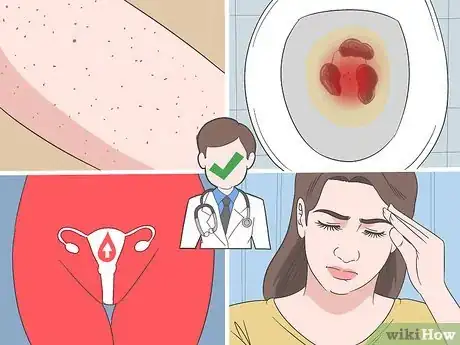
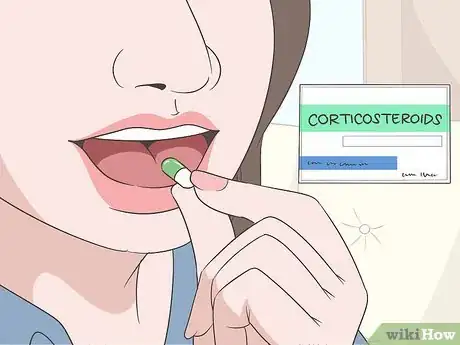
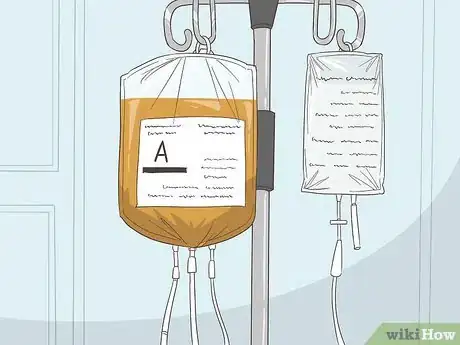
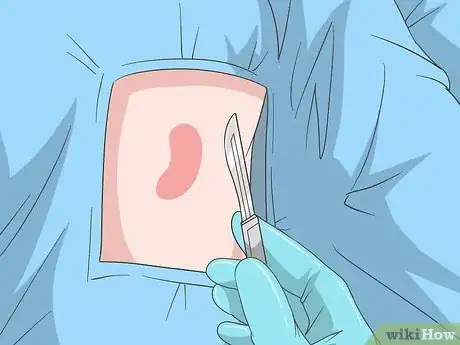
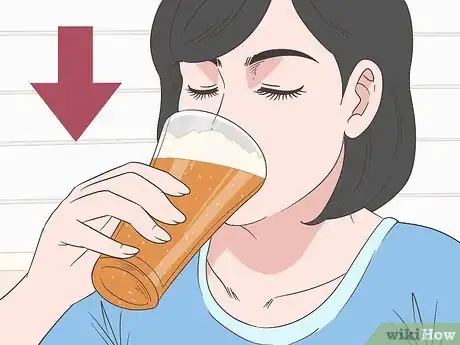
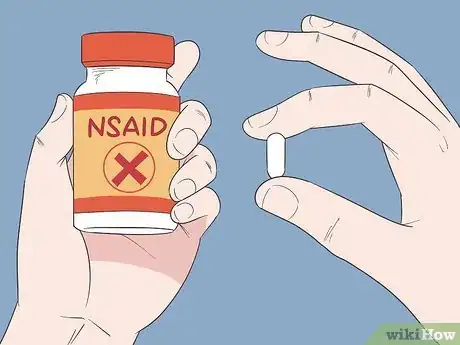
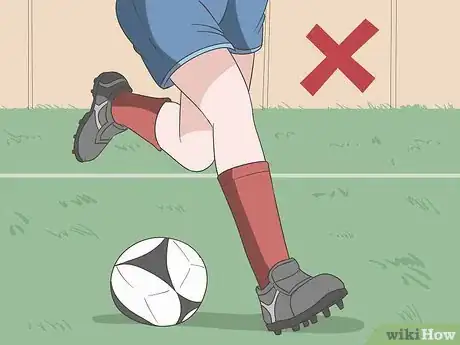
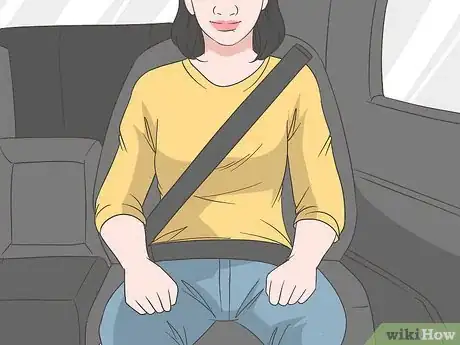
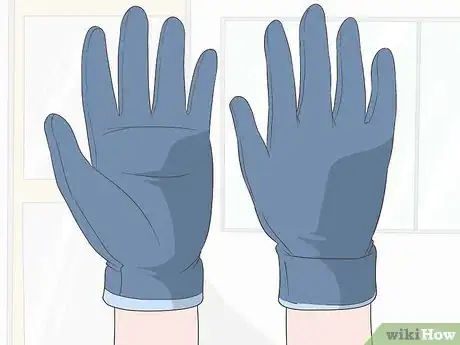
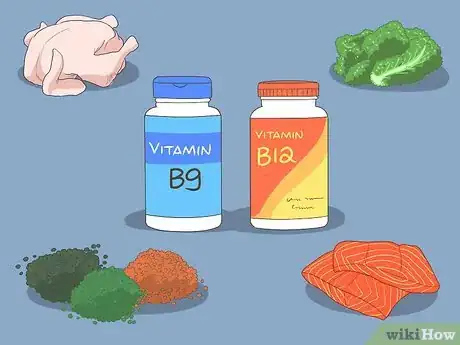
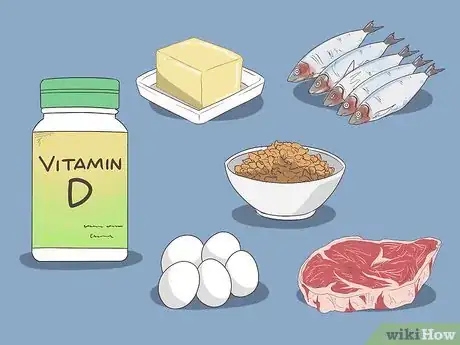
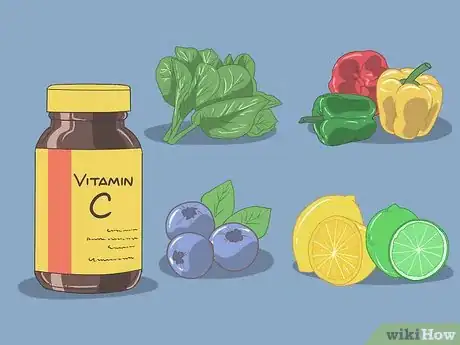
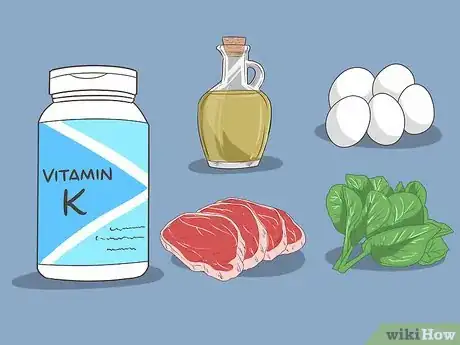
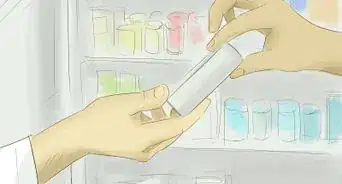

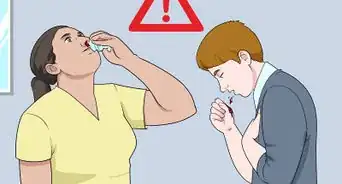


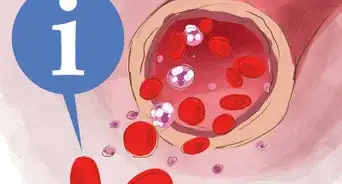
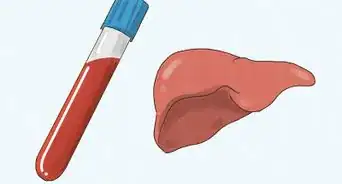

-Step-14-Version-2.webp)

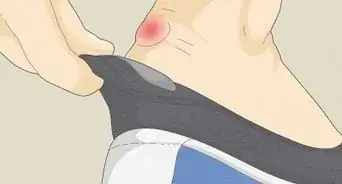

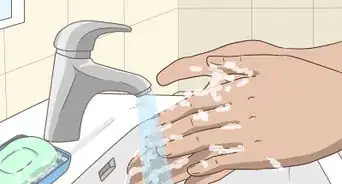
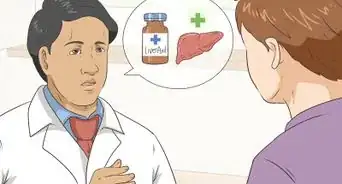











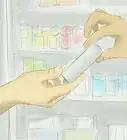

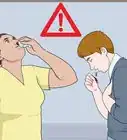




































Medical Disclaimer
The content of this article is not intended to be a substitute for professional medical advice, examination, diagnosis, or treatment. You should always contact your doctor or other qualified healthcare professional before starting, changing, or stopping any kind of health treatment.
Read More...